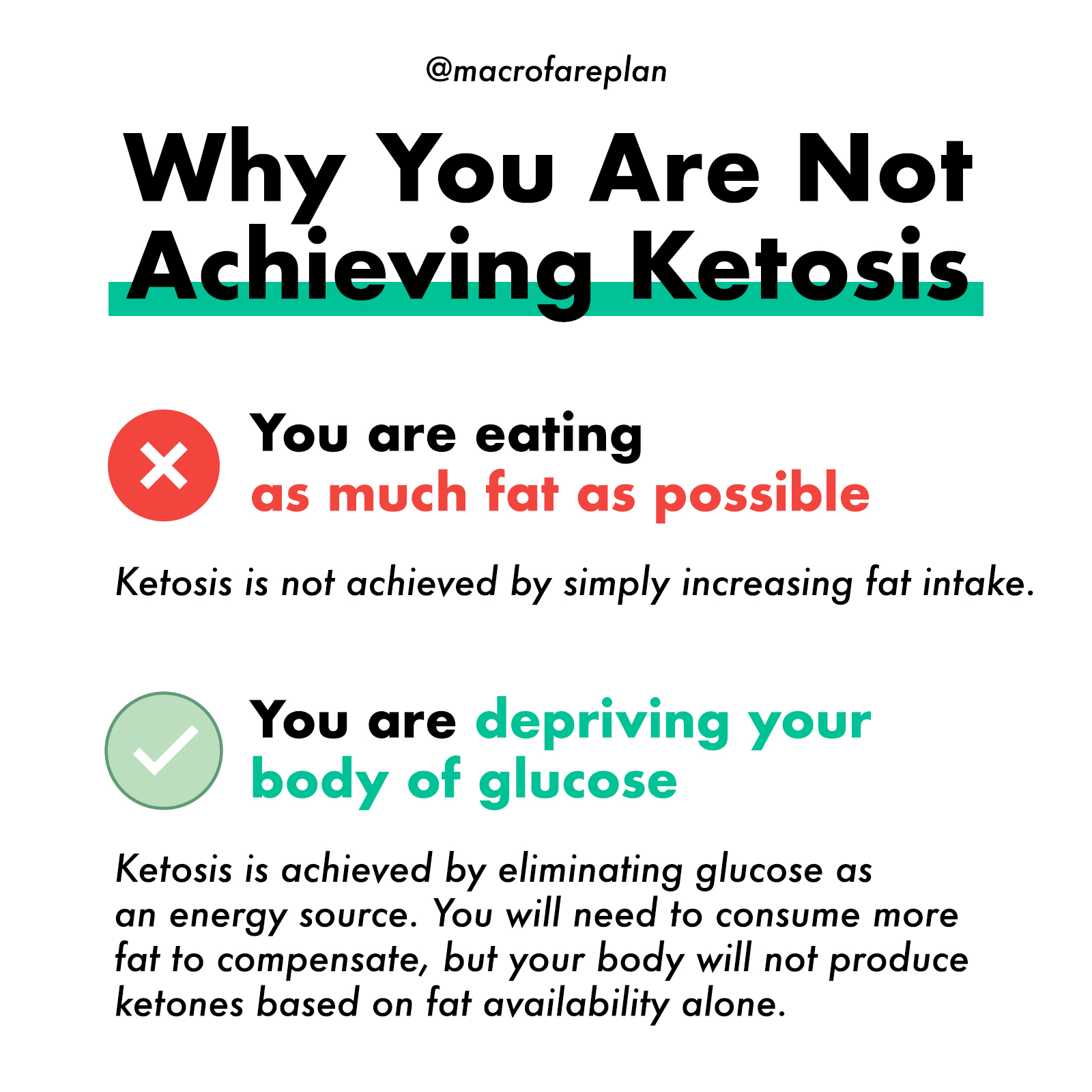
Why Am I Not in Ketosis in the Morning? Demystifying the Factors That Delay Ketone Production
As a health enthusiast, I’ve experimented with the ketogenic diet firsthand. During my journey, one perplexing question often arose in my mind: why does it sometimes take longer than expected to enter ketosis, especially in the morning? To uncover the answer, I delved into extensive research, a forum, social media platforms, and consulted with experts. Here’s what I discovered about the factors that can delay ketosis in the morning.
Understanding Ketone Production and the Ketogenic Diet
The ketogenic diet is a high-fat, very low-carb eating plan that forces the body to burn fat for fuel instead of carbohydrates. When the body enters ketosis, it produces ketones, which are molecules that serve as an alternative energy source to glucose.
Normally, the body readily produces ketones when deprived of carbohydrates for an extended period. However, several factors can interfere with this process, resulting in delayed ketosis, particularly in the morning.
Potential Reasons for Delayed Ketosis in the Morning
1. Insufficient Carbohydrate Restriction:
To trigger ketosis, carbohydrate intake must be drastically reduced, typically below 50 grams per day. If you’ve been consuming too many carbs, especially before bed, your body may not have fully depleted its glucose stores by morning, delaying ketosis.
2. Hidden Carbohydrate Sources:
Even small amounts of hidden carbohydrates can interfere with ketosis. Check food labels carefully for added sugars, starchy vegetables, or other sneaky carb sources. Consider measuring your daily carb intake to ensure accuracy.
3. Protein Overconsumption:
While protein is an essential macronutrient, excessive protein intake can inhibit ketosis. Protein can be converted into glucose through a process called gluconeogenesis. Aim for moderate protein intake, around 0.8-1.2 grams per kilogram of body weight daily.
4. Intermittent Fasting:
Intermittent fasting can be beneficial for weight loss and improving insulin sensitivity. However, if you’re new to fasting or have been fasting for prolonged periods, your body may release stored glycogen, which can temporarily elevate blood sugar levels and delay ketosis.
5. Exercise:
Strenuous exercise depletes glycogen stores in the muscles. When glycogen is low, the body can enter ketosis more quickly. However, if you exercise vigorously in the morning, you may deplete your glycogen reserves and slow down ketosis in the short term.
6. Stress:
Stress can trigger the release of hormones like cortisol and adrenaline, which can inhibit ketosis. Find healthy ways to manage stress, such as exercise, meditation, or yoga.
Tips and Expert Advice for Entering Ketosis Faster
1. Gradually Reduce Carbohydrate Intake:
Don’t drastically cut out carbs overnight. Start by reducing your carb intake gradually over a few days or weeks to give your body time to adapt and minimize potential side effects.
2. Measure Your Carbohydrates:
Using a food scale or tracking app can help ensure you’re accurately measuring your carb intake. Stay within the recommended range of 20-50 grams per day.
3. Avoid Hidden Carbohydrate Sources:
Be vigilant about checking food labels and avoiding processed foods, sugary drinks, and high-carb vegetables like potatoes and corn.
4. Intermittent Fasting Protocol:
If you’re new to intermittent fasting, start with shorter fasting windows and gradually increase the duration as your body adapts. Listen to your body and break the fast if you experience any discomfort or adverse effects.
5. Exercise Strategically:
Exercise can be beneficial for entering ketosis, but avoid intense workouts in the morning if you’re trying to achieve ketosis quickly. Consider exercising later in the day once your body has had time to burn through its glycogen stores.
Frequently Asked Questions (FAQs)
Q: How long does it take to enter ketosis?
A: The time frame varies depending on individual factors. Generally, it can take anywhere from a few days to several weeks.
Q: How can I measure ketosis?
A: You can measure your ketone levels using blood, urine, or breath tests. Blood tests are considered the most accurate.
Q: What are the benefits of ketosis?
A: Ketosis can lead to weight loss, improved blood sugar control, reduced cholesterol levels, and increased energy.
Conclusion
Understanding the factors that can delay ketosis in the morning can help you optimize your diet and lifestyle to achieve ketosis more effectively. By gradually reducing carbohydrate intake, avoiding hidden carb sources, moderating protein consumption, and managing stress, you can create an environment that supports ketosis and its potential benefits.
Are you interested in exploring the topic of ketosis in more depth? Let me know your questions and insights in the comments below. Together, we can delve deeper into the science and practical aspects of this fascinating metabolic state.

Source Image: www.pinterest.com

Source Image: www.pinterest.com

Source Image: www.pinterest.com
Appreciate for your animated curiosity in reading this. Why Am I Not In Ketosis In The Morning, is a fantastic resource for expanding your perspective.